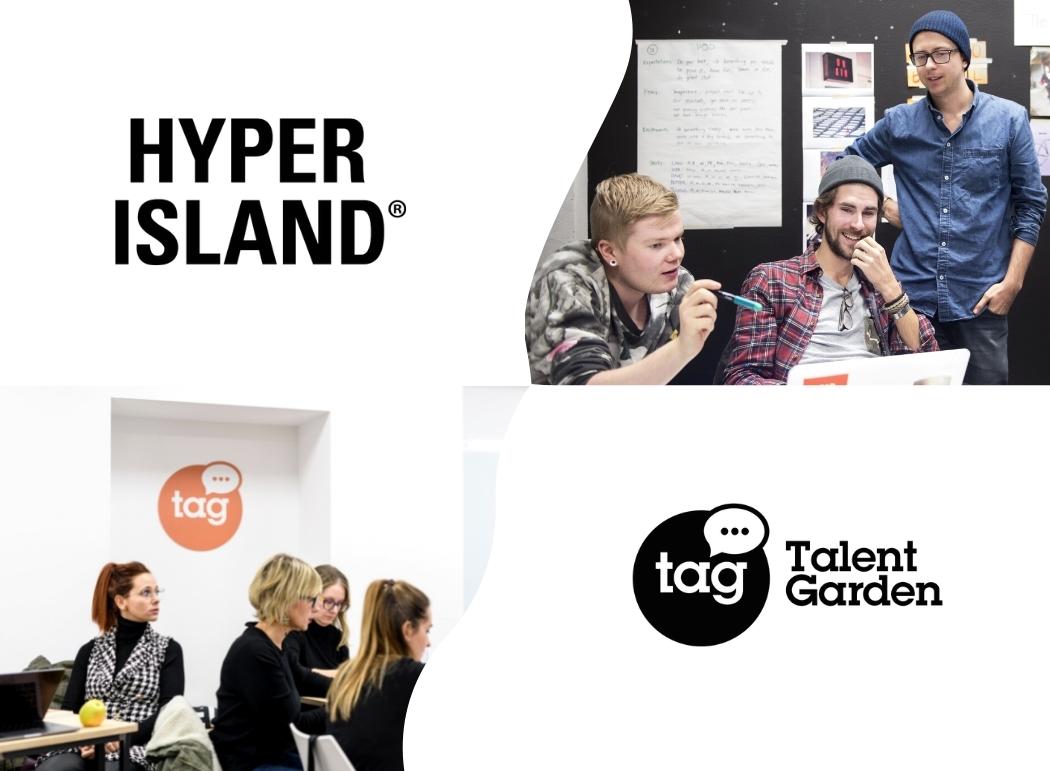- Home
- Business Innovation
- Hybrid Humans - The Worker of the Future


Don't you want to read? Try listening to the article in audio mode 🎧
If you ask a friend how they believe technology will alter the job market within the next twenty years, odds are they are going to tell you that machines will take over human jobs, leaving us with masses of redundant workers. The fear is legitimate, but the future is - or at least could be - much more exciting.
There is no doubt that we are witnessing important changes in the job market, and we will definitely see more of them in the years to come. Digitalisation is altering everything from the kind of jobs that are out there, the way we do our jobs, the skills needed to get a job, and the type of education needed to acquire and keep up with these skills.
Considerations from the Front Row
During our years on the tech and startup scene, where we have been working on the forefront of technological and digital change, we have been making observations about the effects that these changes have on us as professionals. How great wouldn’t it be if we could use that knowledge to look into the future and find out how we can all prepare a little better for it? Our Hybrid Human survey was made as an attempt to answer questions that we have been asking ourselves for a few years now. As a platform that empowers digital communities, as well as an educational institution for future skills, we are naturally fascinated by the digital changes happening around us. We see new job titles emerging, we see roles changing and we identify a huge skills gap between what people know today and what they will need to know to do the jobs of the future. We also see a digital labor market that is increasingly demanding a workforce that is flexible, highly upskillable and versatile between hard and soft skills. We call this survey Hybrid Humans because we believe this term is what best describes the trends we are witnessing today on the work market. Soft skills are meeting hardcore tech skills; ultra-focused developers need to be stakeholder managers; everyone needs marketing skills and marketers suddenly need to be just as data-driven as they are creatives who can produce content pieces that convert. The sudden need to be a skilled networker on top of a tech-savvy SEO expert requires a new mindset and a new type of hybrid worker. There are mainly three areas that will be covered in our Hybrid Humans survey.Soft Skills Meet Hardcore Tech Skills
Digital work today is highly project-based. Various elements bring home the perfect product and there are many stakeholders involved. Users need to be interviewed, developers must have a good relationship with UXers and Product Owners, marketers need to be involved in the creation of personas as well as the content. Gone are the days of the isolated programmer, who could work secluded in an attic office. It is no wonder that Project Managers, Program Managers, and Implementation Experts have become key players lately, with a plethora of certifications and courses to back them up. Similarly, creative skills like design have become increasingly important in the tech world and are now playing a key role in many projects. This is good news for all those artistic spirits who are now suddenly hot on the job market, but it also creates new expectations on those who thought that being good at math would be enough to land a great tech job. It also creates new challenges for managers and leaders, who need to incorporate a new mindset and deal with new types of employees.New Roles
New roles, like Scrum Masters, Customer Success Managers and Data Scientists have been popping up as direct results of new needs and technological advances. Studies show that one third of the jobs that will be offered to today’s primary students, do not yet exist. One positive aspect of this is that it leaves the field open for people to transfer between roles or build on their previous one. A waiter with exceptional people skills could now become a Customer Success Manager; a teacher with great organisational skills and a holistic view on the strengths and weaknesses of different individuals could become a great Scrum Master. A psychology major with an interest in behavior and a flair for writing can become a top-notch Growth Hacker. The idea of transferable skills - employed for a long time by countries like the UK but still not implemented in more conservative job markets like France - is more relevant than ever before and, quite often, unavoidable. Another aspect is that we now see an increasing need for “top-up” or “upskilling” on-the-job training. Rather than replacing your UXer for a Product Manager, or your sales guy for a Growth Hacker, you might want to invest in re-training. Developing your workforce has proven to be beneficial for both employee engagement and for business. Also, you don’t have much choice as the academic educations for these kinds of positions are still fairly new and untested or just not agile enough to comply with the rapid changes in today's market.New Demands - New Education System
So, what happens when the job market is hungry for skills that the traditional academic institutions are not providing? Well, no one really knows yet, but it would be difficult to deny that we need a new type of education system. Life-long learning and on-the-job-training is a must if you are planning to keep versatile Millennials and you don’t want to start from scratch with each employee. Academic institutions are often stuck with teachers who are strong on theory but who have not been working with the latest technologies for many years. This does not mean that a strong, academic base is redundant. What we could call a general, or foundational education, makes you better at adapting to change and a better fit for life-long learning. In an era of constant and rapid technological change, it can not, however, be considered sufficient anymore. A positive outcome of the changes brought on by technology is that we are witnessing a decreased training gap. Whereas on-the-job training was normally reserved for those who already possessed a good level of education (it is a quicker win to invest in trained learners), we now observe that the higher the rate of technological change, the more uneducated workers are receiving training. In general, the proportion of individuals receiving training increases with technological advances.The Outcome
Once we have collected the results of this survey, we hope to have a clearer picture of the type of skills needed on the job market today (and in the decades to come): the new types of roles that are appearing and what we could do to prepare for them. We are keeping it human-centered, as we are interested in the individual perception of these changes. Thus, it will also be a study on the ambitions, fears, drivers and goals of today’s workers - Millennials and others.
Article updated on: 09 August 2023

Don't Waste Your Talent. Turn It Into a Career With a Course That Fits Your Needs!
Talent Garden is your Digital Skills Academy, offering courses in Digital Marketing, UX Design, Digital HR and Data Analysis designed to launch your career.
Keep reading

4
min read
Europe’s leading digital education player: Talent Garden + Hyper Island
The global digital education market will grow from $8.4 billion in 2020 to $33.2 billion by 2025, making it one of the ...
Talent Garden
29/11/2021

15
min read
Graduate and Conquer: 4 Tips to Securing Success in Tomorrow’s Job Market
Embracing post-graduation uncertainty You have just graduated. Those you left behind have been exciting years, ...
Talent Garden
21/11/2023

2
min read
The Role of the Digital Transformation Manager
Being in the digital age you may think that all companies are already completely tech savvy and that they have long ...
Talent Garden
05/06/2021

19
min read
How Will Corporate Training Evolve in 2024? Let’s talk about Experiential Learning and Technological Innovation
How corporate training has transformed in the past 12 months As we step into 2024, the corporate training landscape ...
Talent Garden
20/12/2023
